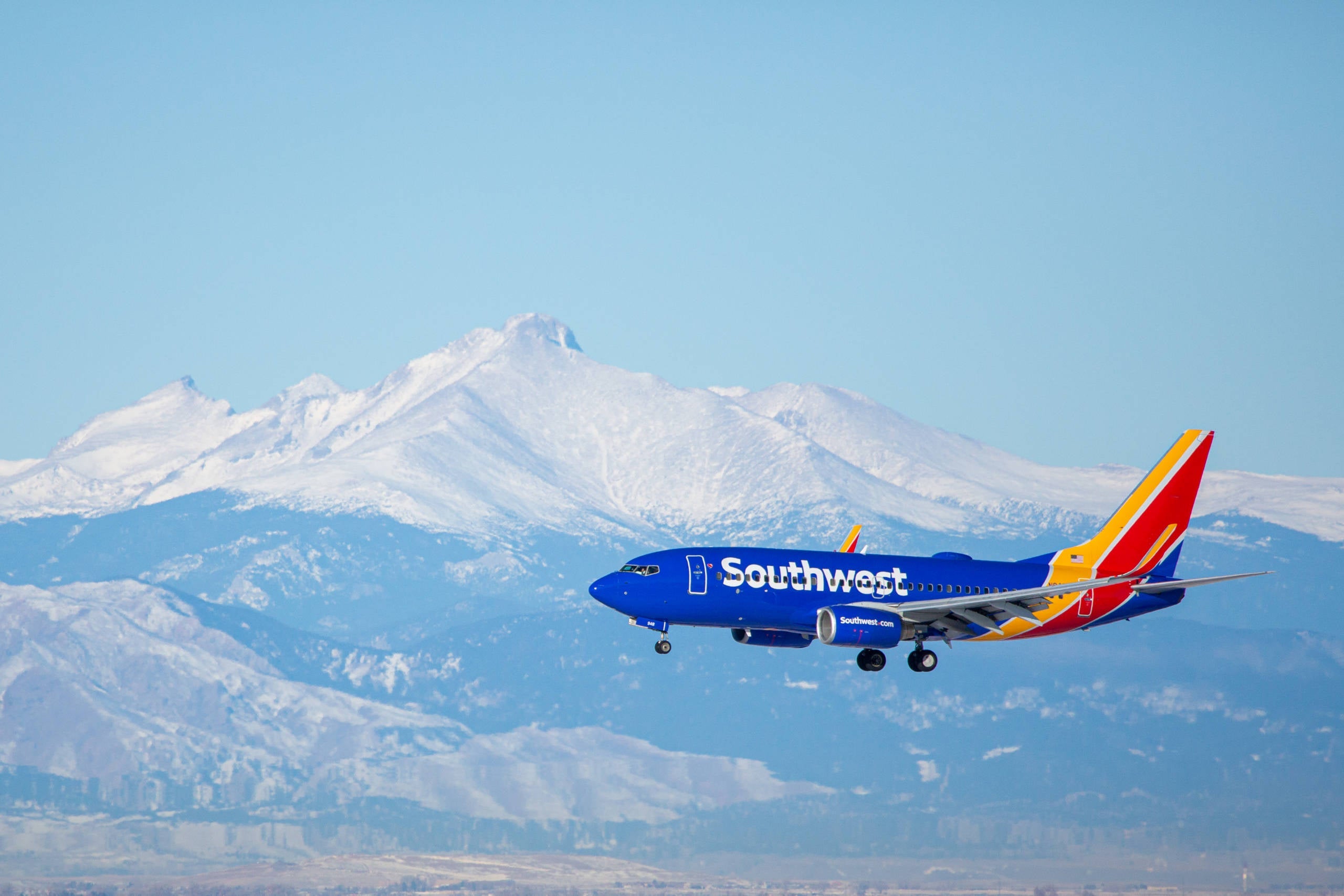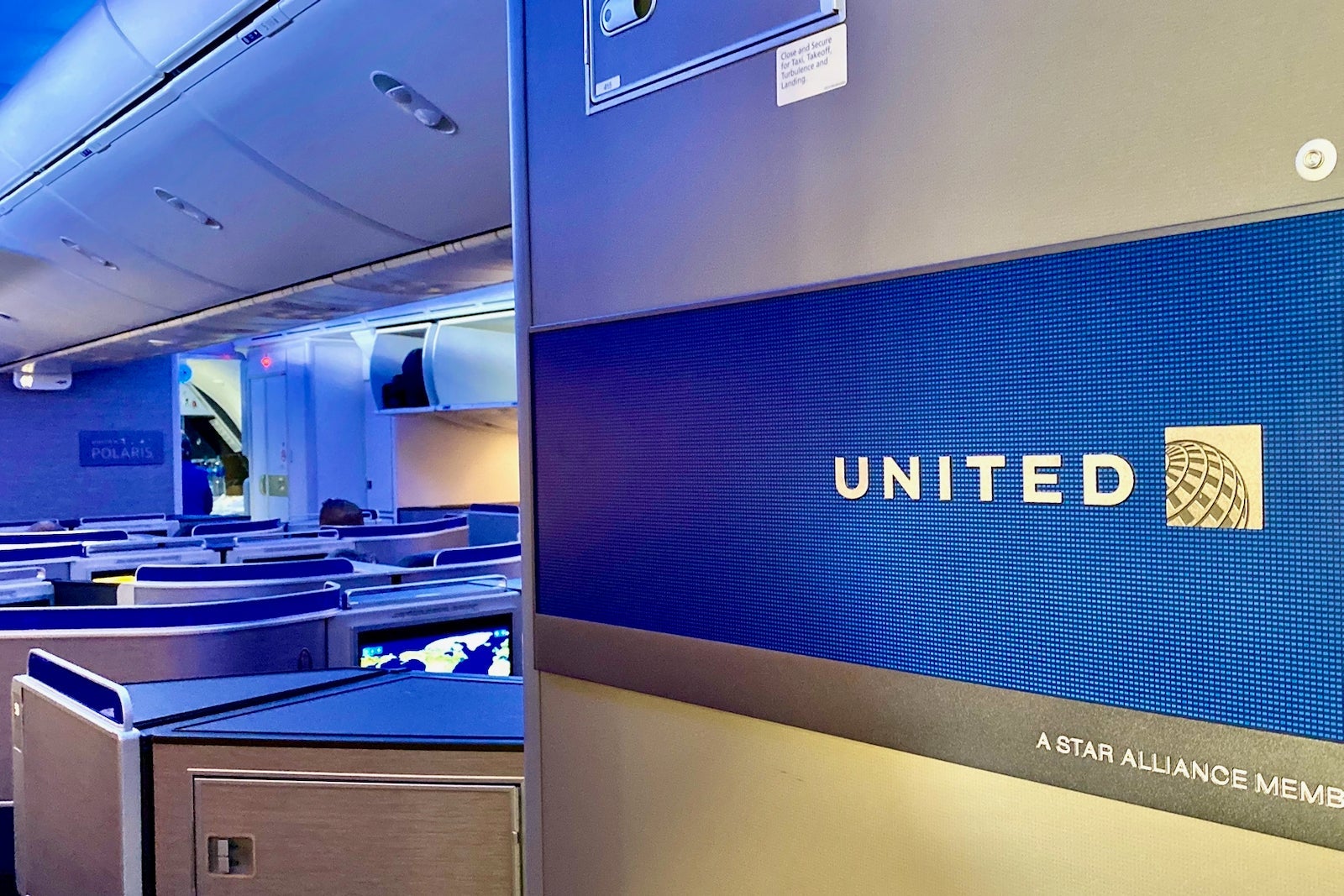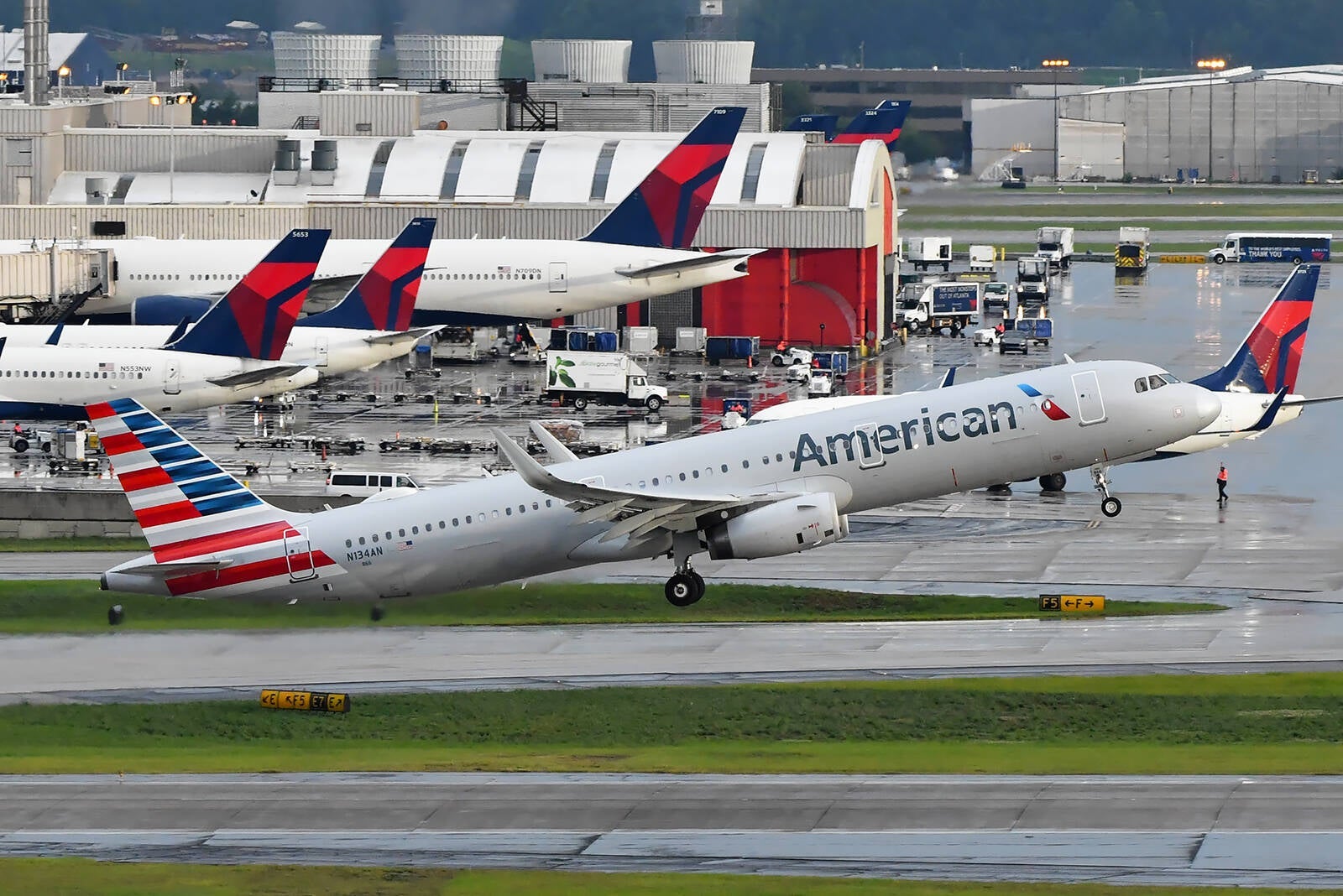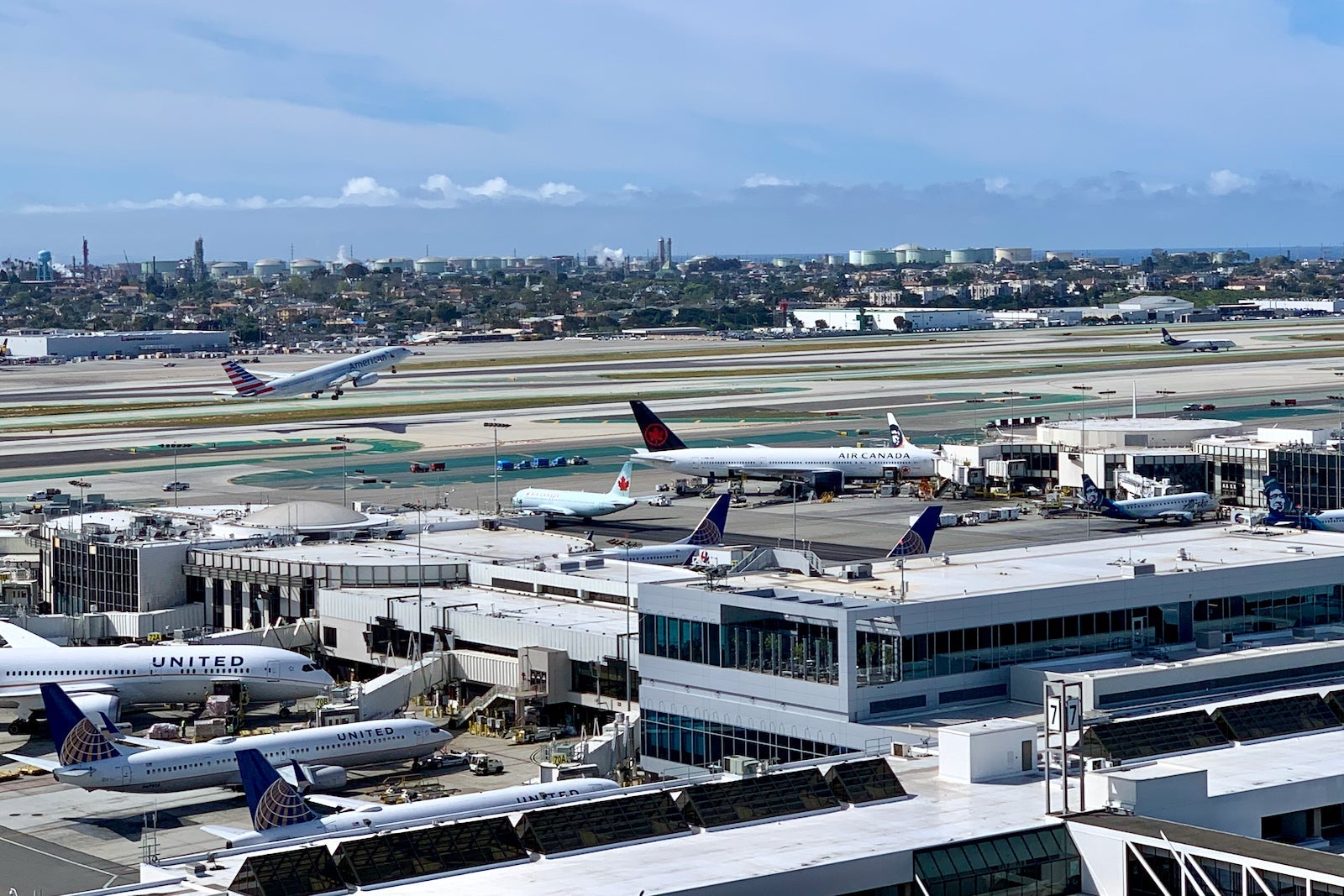The wild 48-hour timeline that led to airlines permanently eliminating change fees
Southwest Airlines is unique.
The Dallas-based carrier has long been the sole outlier in the U.S. airline industry to never charge change fees. To this day, many people are loyal to the airline because of its flyer-friendly policies.
But Southwest's no-change-fee policy now has competition.
Over the course of 48 hours, four other major U.S. carriers — Alaska, American, Delta and United — announced that they too are permanently eliminating (most) change fees.
None of Southwest's competitors went as far as to eliminate all change fees. Delta and United are excluding international tickets, and the four new no-change-fee policies all exclude basic economy tickets.
Nonetheless, this is still great news for customers. Going forward, you can forget about paying the pesky change fee of up to $200 (or more) when a meeting gets canceled or a family reunion gets postponed.
Stay up-to-date on airline and aviation news by signing up for our brand-new aviation newsletter.
But how exactly did we get here? After all, airlines haven't historically been in the business of making benevolent customer-friendly changes. Last year alone, change fees were a $2.8 billion revenue stream.

United got the party started on Sunday, Aug. 30. The Chicago-based carrier clearly had all the details prepared for its major announcement. Social assets were lined up, email blasts were drafted and the press release published at 4 p.m. ET.

And when United pressed "publish" on the release, it sent shockwaves throughout the industry. Customers immediately applauded the decision, and the media was all over it. Analysts predicted that United's move was only the beginning.
In the hyper-competitive airline industry, when one carrier — especially one of the "Big 3" — makes such an announcement, the others follow closely. And that they did.
In an interview with TPG, Henry Harteveldt, president at Atmosphere Research Group, noted that "it's not uncommon for airlines to play follow-the-leader at a very rapid pace."
Within hours, social media was filled with tweets and posts like "when will American match?" and "I can't believe Delta wasn't first."
But behind-the-scenes, it was likely a race against the clock for American and Delta. Harteveldt reasons that "American and Delta weren't going to let United have a meaningful advantage of being the only network carrier offering a no-change-fee policy. These changes were made in the business equivalent of supersonic speed."

When United made its move, American might've been caught off-guard. But, the carrier was likely working on its own version of the announcement for quite some time.
Vasu Raja, American's chief revenue officer, said in an interview with TPG that "the plans were in the works for a while."
Related: The complete details of American's and Delta's no-change-fee policies
Harteveldt agrees. He thinks that "American's response suggests that they had been studying this move. Whether they planned to announce it on Monday or later in the week, United's move forced American to speed up."
When AA announced its no-change-fee policy on Monday, Aug. 31, AA had a stacked press release. Not only did it include details about removing change fees, but it announced some overwhelmingly positive changes to the basic economy experience as well.
Though American took a day to respond, its no-change-fee policy quickly became the best of the Big 3. The carrier will offer credits when switching to a cheaper flight. Plus, domestic, as well as short-haul international tickets to Canada, Mexico and the Caribbean are included too.
And come Oct. 1, American will offer the most generous basic economy experience of the legacy carriers. You'll soon be able to purchase seats, upgrades and same-day changes as part of the carrier's most affordable fares.
But, was the no-change-fee policy part of what American had originally intended to announce? Or, was that added ad hoc following United's Sunday bombshell.
Harteveldt doesn't know for sure, but — either way — he thinks American went back to the drawing board, at least to make some tweaks. "If American had really planned to announce this on Monday, I'm surprised that they waited until late in the afternoon. This suggests to me that American needed to make adjustments to its strategy."
We may never know for sure, but AA likely needed some time to finalize whatever plans were in the works. Either way, American's announcement had more details than Delta's.
Even if the Atlanta-based carrier was considering such a move over the past few months, Monday's response felt rushed compared to both American and United, Harteveldt said, echoing observations made by other industry observers. For example, Delta hasn't yet decided what it'll do about giving credit for changing to cheaper tickets or whether the policy applies to SkyMiles award tickets.
Related: How airline no-change-fee policies stack up against Southwest
"Delta wants consumers to know that it will waive change fees and compete with United, at the very least. Delta's announcement buys the airline time to now determine what its long-term strategy will be," said Harteveldt.
"It would've been better if Delta's announcement was more complete. But, the carrier is holding its cards close to its chest," he continued.

Let's take a closer look at the timing. Delta's news came out at 3:15 p.m. ET. American's? 3:35 p.m. ET. Those 20 minutes landed Delta the title of being the second of the Big 3 to eliminate change fees and match United. But it also meant that the airline may not have had enough time to iron out the details.
According to Harteveldt, "Delta needs time to examine its options and calculate the impact this decision will have on its revenue. It's asking questions like what happens in a year or two if business conditions improve? What are the implications for corporate travelers?"
American and United, on the other hand, had clearly already made those calculations in preparation for their announcements.
In a way, Delta's move breaks from its track record. For years, Delta's been the trailblazer among the Big 3, even most recently as the elite-status extension spree in April.
On Sunday, April 5, Delta was the first major U.S. carrier to announce elite status extensions and pandemic-related updates to its SkyMiles loyalty program. Delta had all the details ready to go — and it acted first.
United announced its MileagePlus updates later the same afternoon. Again, another example of the Big 3 moving in lockstep. American needed a bit more time to finalize the details, so the carrier ultimately announced status extensions eight days later.
Regardless of how the 48 hours played out, here we are — Southwest is no longer the only U.S. airline without change fees. Whether that'll be permanent is anyone's guess, but don't necessarily count on it, said Harteveldt.
"There is no such thing as permanent in the airline business," he explained.
TPG featured card
at Capital One's secure site
Terms & restrictions apply. See rates & fees.
| 5X miles | Earn 5X miles on hotels, vacation rentals and rental cars booked through Capital One Travel |
| 2X miles | Earn unlimited 2X miles on every purchase, every day |
Pros
- Stellar welcome offer of 75,000 miles after spending $4,000 on purchases in the first three months from account opening. Plus, a $250 Capital One Travel credit to use in your first cardholder year upon account opening.
- You'll earn 2 miles per dollar on every purchase, which means you won't have to worry about memorizing bonus categories
- Rewards are versatile and can be redeemed for a statement credit or transferred to Capital One’s transfer partners
Cons
- Highest bonus-earning categories only on travel booked via Capital One Travel
- LIMITED-TIME OFFER: Enjoy $250 to use on Capital One Travel in your first cardholder year, plus earn 75,000 bonus miles once you spend $4,000 on purchases within the first 3 months from account opening - that’s equal to $1,000 in travel
- Earn unlimited 2X miles on every purchase, every day
- Earn 5X miles on hotels, vacation rentals and rental cars booked through Capital One Travel
- Miles won't expire for the life of the account and there's no limit to how many you can earn
- Receive up to a $120 credit for Global Entry or TSA PreCheck®
- Use your miles to get reimbursed for any travel purchase—or redeem by booking a trip through Capital One Travel
- Enjoy a $50 experience credit and other premium benefits with every hotel and vacation rental booked from the Lifestyle Collection
- Transfer your miles to your choice of 15+ travel loyalty programs
- Top rated mobile app


